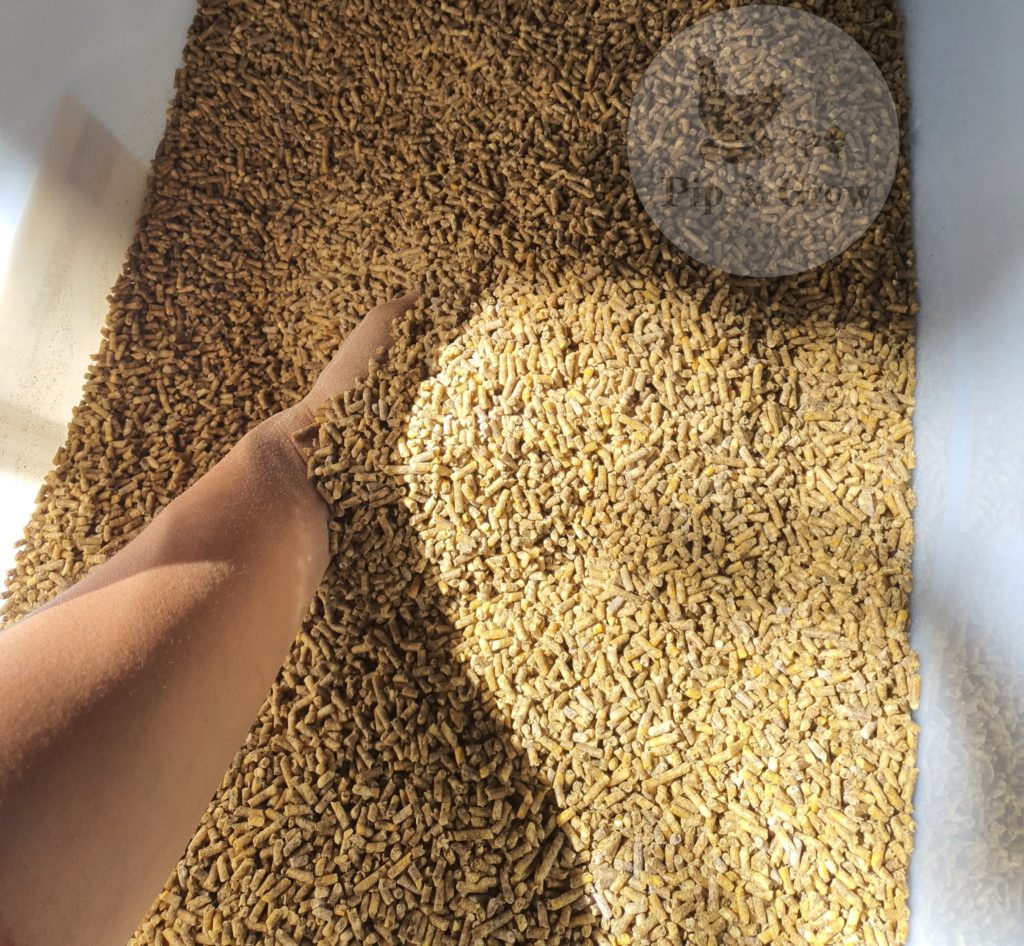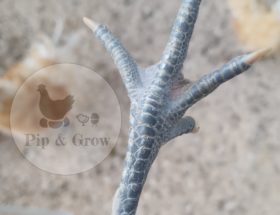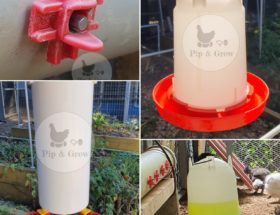
Too much Protein is harmful for chicken.
Some poultry keepers opt for high-protein feeds, such as game bird feed which contains over 20-22% of protein, to accelerate growth and promote rapid feather development. While protein is essential for growth, egg production, and overall health, an overabundance can cause problems.
One crucial lesson we’ve learned over time is that excessive nutrition, particularly during periods of rapid growth, can have adverse effects on chickens. Elevated protein levels, in particular, can lead to issues like Perosis, especially in larger-framed breeds and standard bird cockerels. Perosis can occur for various reasons from a young age, but in this case, it arises when a bird’s body experiences rapid growth, gaining excess weight before its leg bone plates fully develop. This imbalance ultimately leads to leg problems, typically occurring between 13-18 weeks of age. Therefore, it’s crucial to provide balanced nutrition that meets the specific needs of each stage of growth without overdoing it, especially concerning protein levels.
Excessive protein in the diet can be wasteful, as the surplus is not effectively utilized by the birds and can be converted into ammonia by their kidneys. This excess ammonia can accumulate in their pens, leading to potential respiratory problems and foot blistering due to increased ammonia levels. Additionally, high-protein diets can put strain on the kidneys as they work to process and eliminate the excess protein. Over time, this prolonged strain may result in kidney damage or dysfunction, further impacting the health and well-being of the birds.
Contrary to popular belief, excessively high-protein diets may actually reduce egg production in laying hens. This imbalance can disrupt the hormonal balance necessary for optimal egg-laying. Protein is calorie-dense, and excess protein consumption can lead to weight gain and obesity in chickens, particularly if they do not have enough opportunity for exercise.
Furthermore, high protein intake can lead to increased water consumption by the chickens, resulting in wetter bedding and looser, more sloppy feces. This not only creates more work for keepers in maintaining cleanliness but also provides a perfect breeding ground for germs and bacteria. Maintaining dry and clean bedding is crucial for the health and hygiene of the flock, as it helps minimize the risk of disease and illness spreading among the chickens.
It’s essential to understand that while protein is necessary for chicken health and growth, more isn’t necessarily better. Achieving the right balance in the diet is essential for promoting optimal health and performance in the flock.


